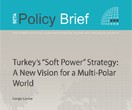The Religious Challenge
As a monotheistic religion, Islam defines itself as the last of the three great Abrahamic faith traditions. The Qur’ân and hadîth (the two canonical sources of Islam) and the later scholarly traditions reveal an acute awareness of Judaism and Christianity.
There are no two world civilizations whose histories have been as closely intertwined as Islam and the West. From the earliest polemics of Theodore Abû Qurrah, Bede, and St. John of Damascus, to the Crusaders, the Andalusian convivencia (coexistence), or the fascination of American transcendentalists with things Islamic in the manner of their German master Goethe, the two worlds of Islam and the West have for the last fourteen centuries negotiated various modes of sharing world history. It is a history filled with clashes and confrontation, competition and challenge, admiration and hatred, acceptance and rejection, and a host of other conflicting feelings, attitudes, and experiences. No matter how one defines the terms “Islam” and “the West”—or whether one chooses to do away with them altogether—the self-perceptions and identity claims of those who live in Muslim and Western societies have been shaped by these checkered histories. That is one reason among many that relations between Islam and the West never seem to lose their relevance for the state of our world—from politics and international relations to interfaith relations and discussions of pluralism. A brief overview of this long history reveals three main areas of interaction: religious, cultural, and political.
The Religious Challenge As a monotheistic religion, Islam defines itself as the last of the three great Abrahamic faith traditions. The Qur’ân and hadîth (the two canonical sources of Islam) and the later scholarly traditions reveal an acute awareness of Judaism and Christianity. The two sources contain numerous references to Jewish and Christian themes, calling upon Jews and Christians to unite in a robust monotheism against Meccan polytheism and its profligacy. Born into a multireligious and multicultural environment, early Muslims were in contact with the various Jewish and Christian communities of the East in the eighth and ninth centuries.
The polemical works of Byzantine theologians were as much theological in nature as cultural and political. As the lands once under Byzantine rule rapidly became part of dâr al-Islâm (the abode of Islam where Muslims lived as a majority), Islamic theology posed a set of religious challenges. While Jews and Christians were recognized as the People of the Book (ahl al-kitâb) and were granted some religious freedom—a license no other religion has ever granted—they were invited to a serious theological dialogue, “a common word between us and you” (Qur’ân, Âl ‘Imrân 3:64). The fact that Jesus Christ and the Virgin Mary, among other Biblical figures, were given a prominent place in the Qur’ân and the hadîth became a source of consternation for many Christian theologians in the East and later in Europe.
The medieval Christian theologians interpreted the themes common to Islam and the Biblical tradition not as a matter of “creative borrowing,” as nineteenth-century Orientalists would call it, but as a sign of outright heresy. St. John of Damascus, known in Arabic as Yûhannâ al-Dimashqî (d. 749), called Islam the “heresy of the Ishmaelites,” referring to Arab Muslims as descendants of Abraham’s son Ishmael, and called the Prophet of Islam an “impostor.” The Christian apocryphal literature on the Prophet Muhammad was more than polemical. If Embrico of Mainz’s (d. 1077) Vita Mahumeti and Walter of Compiègne’s Otia de Machomete a century later are any indication, it was also an elaborate means of constructing a religious “other” for medieval Christendom. The refusal to speak to Muslims on their own terms continued throughout the Middle Ages and the Enlightenment. A section of Pascal’s Pensées ca

